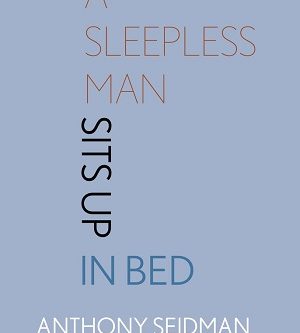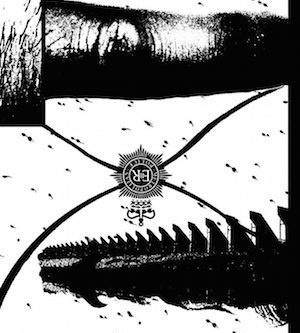
Chaos, lies, and raw emotion battle one another, composing and decomposing organically to create the heavy words strung together in Valerie Hsiung’s You & Me Forever. A work which transcends the barriers of a title of contents page and throws tradition under the bus of nostalgia. Memories alter page by page, making readers question their own experiences in youth as if self deception is a character in the story of our lives. Tradition, raunch culture, religion, origin story and sexual harassment mold into the textbook of an elementary school child and we are transported back to the world only our repression can find.
Written in sections of “Book One” , or “Postscript”, the poems wreak havoc on the mind and transport readers into the strange world of being literally lost in thought. This form of revisionism lends the text to become an art form in multiple layers and works as a performance. There have been certain moments when one can feel certain of relative trauma in text. You feel, I feel, they feel. We can all empathize or sympathize and wonder and relate. But there are times when a person comes across words on a page, and while remaining a hundred percent sure that they just read about rape, abandonment, or the unavoidable lies which come with ancestry, one may not notice the significance of the trauma. Valerie Hsiung’s work functions as a coping mechanism in both structure and content. From the words on the page to how they settle on the paper, meaning is woven into memory. Playing around with sentences and repetition like no one before her, Hsuing’s poems twist popular culture by recycling phrases and lyrics to make different meanings from them, as if putting together a ransom note from newspaper clippings.
Without giving away too much of herself, Hsuing uses ancestry to connect readers to the work in a way that’s relatable like parents lying about the origins of the child’s name, or a small exaggeration of a childhood event. Something so innocent that later becomes the foundation for a life of trauma. While the first section, “Book One” delves into the youth of the narrator, the rest of the work jumps around memories of pain and confusion through events which have been altered by time. Hsuing’s use of italics showcases the mastery of intonation and how the way you say something affects the meaning,“They said the mind-the soul-die too/but only after the body.”
There is a back and forth play between nature and technology at times, “I lick and lap at the magnetic water, become a part of the magnet.” As the narrator discovers a mutiny of self, a battle between memory and reality proceeds and the carnal animal or beast of the narrator becomes the driving force of the work. Violation is a lubricant for timeless emotion and poetry. And here also, the pain and violence in the poems are written with a sense of fragility and lightness that readers may at some points wonder, did we just skip something deep or was it meant to be so fleeting?
More than once did a hand raise and a yelp come from my mouth as I joined in unity with the text, ME TOO! I wanted to shout, but had to keep reading each lasting word like I was starving. Hsuing introduces old ideas and creates their counter-positives, “In ancient times, rape was as common as wild was common. So, abduction, and the two – rape and abduction – often went hand in hand. These are common themes.” And immediately after this we read a section on the double standards portrayed onto Hera and Zues. But there is an almost existential nonchalant way in which the allegories are written. To see rape, then follow with “List of youngest birth mothers.” and no context behind it stands out as poetry that asks the reader to do work – which is brilliant.
Unlike the grit that often comes with trauma poetry, the work here even goes as far as to reclaim “discharge” as something natural and feminine rather than grotesque or medical, “It was easy to carry the box that held her remaining life to the rented room in the abyss where the tree leaked its discharge…In this place, there were trees, mucosal intonations, and unprotected intonations, a vast, endless gamut, with trees, with trees, upon which she was only one of countless sentences.” The heartbreak I still echo while rereading the words in You & Me Forever is something I will cherish each time I have to call my parents grudgingly, or explain myself to an authority figure, or even explain myself to myself. Even in its final section, Hsuing manages to throw tradition in the air and writes the typical “acknowledgements” section of a book but instead of thanking names, she lists moments which have affected her in putting together this work. It’s almost like saying, yes thank you to all my friends and family for shaping me into this creature, or thank you for giving me the trauma and pain to put together this raw perspective of my life.
You & Me Forever is available now through Action Books.


